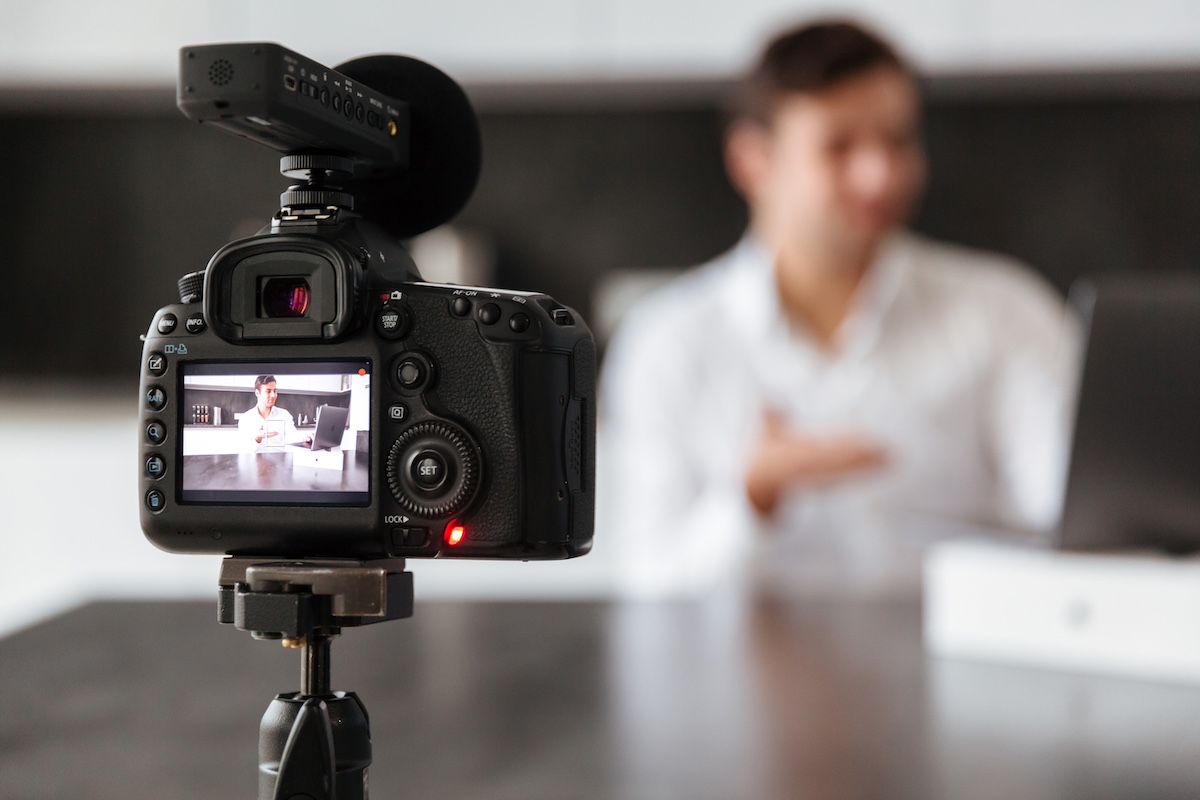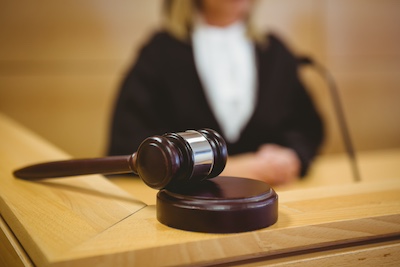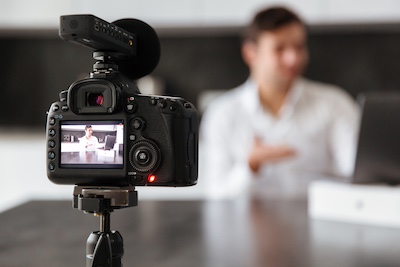
19 Oct When Does a Judge Allow Use of Video Deposition in a Trial?
Using Video Depositions in Trial
Video depositions have become a pivotal tool in the legal world, and understanding when and how they can be utilized is essential. In this article, we will delve into the intricacies of this subject, providing expert insights and practical information.
Understanding Video Depositions
A video deposition is a legal procedure in which a witness or party involved in a legal case provides testimony and answers questions, much like in a traditional deposition, but it is recorded on video. This video recording captures not only the spoken words but also the witness’s facial expressions, body language, and tone of voice, providing a more comprehensive record of their testimony.
Video depositions are often used to preserve witness testimony when the witness cannot appear in court due to various reasons, such as illness, scheduling conflicts, or safety concerns. They serve as a crucial tool in modern litigation, offering a visual and auditory dimension to the legal process that can be invaluable in assessing witness credibility and presenting evidence effectively in court.
When Are Video Depositions Used in Trial?
Video depositions provide a unique opportunity for the court to observe a witness’s demeanor and responses. This visual and auditory insight can be invaluable in assessing a witness’s credibility. Judges often favor their use because it aids in ensuring a fair trial.
By being able to view not only the words spoken but also the non-verbal cues, such as body language and tone of voice, the court can better evaluate the truthfulness of the testimony. This is particularly important in cases where witness credibility is a critical factor in determining the outcome.
In Cases of Witness Unavailability
Video depositions are frequently permitted when a key witness is unavailable to testify in person. Several circumstances can lead to witness unavailability, including:
- Illness: If the witness is suffering from illness, making a physical appearance in court may be impossible or detrimental to their health or wellness. In such cases, video depositions ensure that their testimony can still be presented, allowing the legal process to proceed without endangering the witness.
- Scheduling Conflicts: Witnesses may have prior commitments or scheduling conflicts that prevent them from appearing in court at the required time. Video depositions offer a flexible solution, allowing testimony to be recorded at a time convenient for the witness and then presented in court.
- Distance: In cases where a witness is located a significant distance away from the courtroom, compelling them to appear in person can be both logistically challenging and expensive. Video depositions provide a practical alternative, allowing witnesses to provide their testimony without the need for extensive travel or expensive flights.
In each of these scenarios, the use of video depositions ensures that the legal system can proceed efficiently and fairly, even when key witnesses cannot be present in the courtroom.
When Witness Safety Is a Concern
Ensuring the safety of witnesses is a fundamental responsibility of the legal system, particularly in cases involving criminal trials or vulnerable individuals. Judges may opt for video depositions when witness safety is a legitimate concern, for the following reasons:
- Criminal Trials: In criminal cases, the safety of witnesses can be at risk, especially if they are testifying against dangerous individuals. By allowing video depositions, witnesses can provide their testimony without being exposed to potential harm.
- Vulnerable Witnesses: In cases involving minors, victims of abuse, or individuals in protective custody, testifying in person can be emotionally distressing and potentially harmful. Video depositions provide a more secure and comfortable environment for these witnesses to share their testimony.
Video depositions not only protect the well-being of witnesses but also contribute to the overall integrity of the legal process by ensuring that testimony is provided without undue coercion or intimidation.
Cross-examination and Expert Witnesses
Video depositions are often permitted when it comes to cross-examining expert witnesses or dealing with witnesses located in different geographical areas. Here’s why this practice is favored:
- Efficiency: Cross-examining expert witnesses can be a complex and time-consuming process. By utilizing video depositions, this process becomes more efficient. It allows legal teams to present and challenge expert opinions without the need for everyone to be physically present in the courtroom.
- Geographical Considerations: In cases where witnesses are located far from the courtroom, such as international or out-of-state experts, arranging their physical presence can be logistically challenging. Video depositions overcome these geographical barriers, ensuring that testimony can be heard and scrutinized effectively.
The use of video depositions in these situations streamlines the legal process, saving time and resources while maintaining the quality of cross-examination.
In Complex Cases
Complex legal cases, particularly those involving technical or scientific evidence, can benefit significantly from the use of video depositions. Here’s why they are crucial in such instances:
- Clarity and Precision: Technical or scientific evidence often requires a high level of precision and clarity in its presentation. Video depositions provide the opportunity to present this evidence in a controlled and precise manner. Judges may permit their use to ensure that the testimony is as clear and accurate as possible.
- Visual Aids: In complex cases, visual aids such as diagrams, charts, or physical demonstrations may be essential to help the court and the jury understand the evidence. Video depositions allow for the incorporation of such visual aids, enhancing the comprehension of complex information.
In complex cases, video depositions contribute to the efficient presentation of evidence and enhance the court’s understanding, ultimately leading to a more informed decision.
In the Interests of Justice
Ultimately, judges have the discretion to allow video depositions in the interests of justice. This discretion is exercised when judges believe that permitting video depositions will serve the legal process and the right to a fair trial. It’s a flexible approach that acknowledges the unique circumstances of each case and aims to ensure that justice is served.
In conclusion, video depositions offer a flexible and invaluable tool in the legal system. Their use is guided by principles of fairness, efficiency, and safety, ultimately contributing to the pursuit of justice in various legal scenarios. Understanding when a judge permits their use is essential for all stakeholders in the legal process.
Final Thoughts
Understanding when a judge allows the use of video depositions in a trial is essential for legal professionals and anyone involved in the legal process. Video depositions play a significant role in ensuring the fair administration of justice, especially in situations where in-person testimony is not feasible or safe.
In this article, we’ve covered the importance of video depositions, the circumstances in which judges permit their use, and addressed common questions. By adhering to legal standards and leveraging video depositions appropriately, the legal system can ensure a just and thorough examination of the facts.
Related Questions
Are Video Depositions Admissible as Evidence?
Yes, video depositions are generally admissible as evidence, provided they meet certain legal requirements and the judge approves their use. This approval depends on the judge’s assessment of the video’s authenticity and relevance to the case.
What Are the Legal Requirements for Video Depositions?
Video depositions must adhere to specific legal standards, including proper notice to all parties, a qualified videographer, and the opportunity for cross-examination. Meeting these requirements ensures that the video deposition is legally admissible.
Can the Use of Video Depositions Be Challenged?
Yes, the opposing party can challenge the use of video depositions on various grounds, including relevance, authenticity, or procedural errors. These challenges are essential for maintaining the integrity of the legal process and ensuring that only valid and reliable evidence is presented.
How Can I Ensure the Admissibility of a Video Deposition?
To ensure admissibility, work closely with legal experts, follow procedural guidelines, and consult with the judge to address any concerns. By taking these steps, you can maximize the chances that your video deposition will be accepted as evidence in court.
How Can I Prepare for a Video Deposition?
Proper preparation is essential. Consult with your attorney, review the case, and be ready to provide accurate and truthful testimony. Additionally, practice answering questions clearly and concisely to ensure your video deposition is effective and credible.








